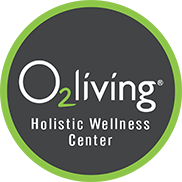A Moment for Mindfulness
 Work. Home. Family. Relationships. How do we balance it? And more importantly, how do we make sure not to miss a moment of what’s actually happening, instead of worrying about what tomorrow holds in store?
Work. Home. Family. Relationships. How do we balance it? And more importantly, how do we make sure not to miss a moment of what’s actually happening, instead of worrying about what tomorrow holds in store?
By now, you’ve likely heard the abbreviation FOMO, or Fear Of Missing Out. A bi-product of the digital age, where photo-envy makes us all wish we were checking-in on a beach in Bali instead of sitting at our office desk, we’re dividing our time, and focus, in a million different directions, trying to get as much as we can out of what little time we have. YOLO (You Only Live Once), right? Don’t worry; the abbreviations stop here.
So, how do we make ourselves present? How do we focus on what’s right in front of our faces instead of turning to our smart phone every 5 minutes for news about upcoming events and who’s doing what where at any given point in time?
“It’s simple, but it’s not easy,” says Michael Apollo, Program Director of the Applied Mindfulness Meditation Certificate Program at the University of Toronto Factor-Inwentash Faculty of Social Work. Apollo has been personally training in meditation and mindfulness for over 13 years and now dedicates his life to helping others use mindfulness as a tool in the workplace and the home. The end goal? Be happy and suffer less.
A JOURNEY OF SELF-DISCOVERY
For Apollo, the journey of self-discovery was jump-started when he crossed paths in Thailand with a Muay Thai kick-boxer who meditated before every match. Inspired to “look under the hood” to see what else he could find, Apollo traveled all over India and South-East Asia in order to better acquaint himself with yoga and meditation traditions found across the world.
While traveling, Michael acquired his yoga trainer certification and studied under leaders likeLama Zopa Rinpoche, the Tibetan Buddhist Scholar made famous for having worked with high-profile celebrities like Richard Gere. “I ended up going on long-term retreats across India, where I could study under different teachers, primarily focused in the Buddhist traditions.” It was in the midst of this journey that he discoveredmindfulness meditation, and a world he was just beginning to understand.
MINDFULNESS MEDITATION: AWARENESS, WITHOUT JUDGEMENT
Mindfulness meditation is a practice that develops an awareness of the experiences taking place inside and outside the body, and asks that you do so with acceptance, patience, and compassion.

“Ultimately, what this does is allow you to live a life where you are happy, and hopefully the people around you are happy, and you’re suffering less,” says Apollo, citing ways in which meditation has helped him heal by overcoming bouts of both depression and social anxiety, and improving his relationship with his family. “You’re still going to have the challenges of life – the pains, the sorrows – but your relationship with them changes. You can see them for what they are, and not be overtaken by them.”
Apollo explains that mindfulness is about seeing things clearly as they are, rather than being locked in our perceptions about what should or shouldn’t happen, a process that spirals us into unhealthy states of mind. “Many people think that mindfulness is a relaxation technique, and it’s actually not. Relaxation is a bi-product of being aware in the moment.”
A key tenet of mindfulness is realizing what is taking place now, so you are able to make an informed choice about how to proceed. “If you weren’t aware of how much was going on, you’d just be stuck on auto-pilot and perhaps make mistakes and damages, reactions, consequences and outcomes you weren’t planning to create.”
MINDFULNESS BASED STRESS REDUCTION (MBSR), MEDITATION IN THE WORKPLACE
Inspired by what he learned overseas, Apollo decided to bring mindfulness training back home to Canada. He combined his experience in both yoga and meditation, with the teachings of Jon Kabat-Zinn, Professor at theUniversity of Massachusetts Medical Centre, and founder of the original 8-week Mindfulness Based Stress Reduction program, to create a program that introduced mindfulness practice into the corporate workspace.
Shortly after he started working as a mindfulness consultant for different businesses, organizations and clinics, Apollo was offered a placement at Toronto General Hospital, where he started working with staff and training them in mindful-based resilience. 5 years later, he is now the Director of the Applied Mindfulness Program at the University of Toronto.
Apollo is also a patent-holder with MUSE, a device that facilitates meditation and brings technology into the mindfulness practice, and is founder of A Mindful Society Conference, an organization that “connects professionals in education, healthcare, workplace, law, technology and life with leading thinkers, current research and mindfulness-based programs.”
Despite the fact that many employers remain sceptical about inserting meditative practices in the workplace, Apollo is confident that mindfulness will soon be integrated into the everyday practices used routinely in corporate settings:
“It’s going to start integrating into our every day interactions so when we have a meeting, we’ll take a purposeful pause for 2 minutes before starting a meeting. Two minutes of gathering ourselves, connecting with our posture, letting the mind settle, focus on being present and then we’d have our meeting.”
Apollo’s goal is to teach as many people as possible so that his own understanding of mindfulness practices continues to grow. “The more I teach, the more I learn,” says Apollo, thankful now for the opportunity to teach others about mindfulness and practice at the same time.
Learn more about mindfulness and the training offered by Michael Apollo at www.michaelapollo.com
